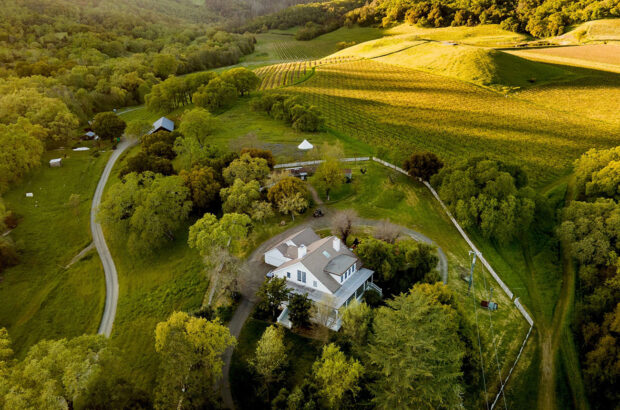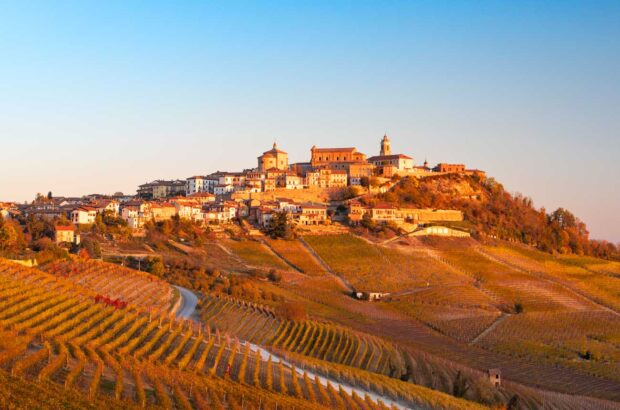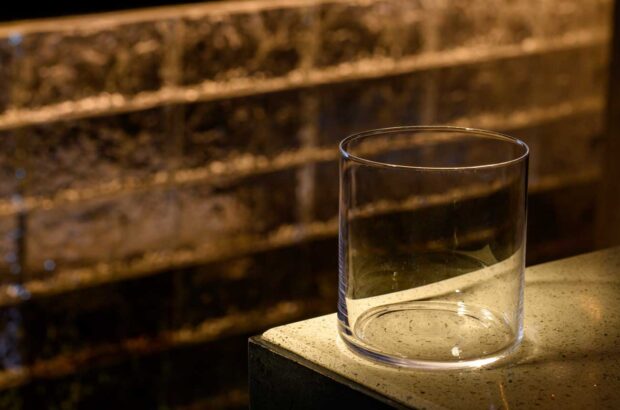Bordeaux’s ultra-traditional, most high profile body has appointed its first female head. What took them so long, asks JANE ANSON
The news wouldn’t raise an eyebrow in Napa, or the Barossa Valley, but in Bordeaux, the election of a female president to the region’s most high-profile wine body has got everybody talking. The Union des Grands Crus de Bordeaux (UGCB) has represented the most well known properties in the region since 1973. In the subsequent 35 years, there have been only six presidents, among them such distinguished names as Jean-Bernard Delmas, Peter Sichel, Alain Reynaud and, most recently, Patrick Maroteaux.
Into this close-knit group has stepped a woman – and not obvious Bordeaux royalty such as Margaux’s Corinne Mentzelopoulos or Mouton’s Baroness Philippine de Rothschild. Sylvie Cazes- Régimbeau has been instrumental in the success of Château Lynch-Bages and the Cazes’ Bordeaux empire for more than 20 years, but until now, older brother Jean-Michel would have been the obvious subject for an interview encompassing the family business and the future of the classified growths of Bordeaux. So why has it taken so long for this elegant, slight woman to be recognised for her achievements? Is it the very fact that she’s a woman in a notoriously traditional wine region? Or has having such a well-known brother made it difficult to establish her own professional identity?
‘Being a woman in Bordeaux has never seemed difficult to me,’ she replies, giving the impression that the thought has never crossed her mind. ‘If anything, for navigating through the politics and building up the public-facing side of our business, it has been an advantage. For me, the harder thing has been having a family and balancing work and home life. But working in your own family company makes things easier, and I have always concentrated on getting on with the job in hand.’
On the subject of the job in hand, she says she was ‘horrified’ at the recent annulment of the St-Emilion classification (see p10). ‘But the chateaux as brands, and the quality of their wine, have intrinsic value and will not alter. Commercially, particularly for land values, we will have to wait to see what effect the ruling has, and whether the appeal to overturn the decision [heard in two years’ time] is granted.’ An interesting first challenge…
At a very youthful 53, Cazes-Régimbeau is president of the board of directors at Château Lynch-Bages and all the Cazes family’s wine and wine-tourism holdings, new president of the UGCB, and newly elected member of the Bordeaux City Council, with a mandate to promote economic development through the wine sector.
‘I felt that this was the right time for new challenges,’ she says with some understatement, acknowledging her brother’s gradual retirement from the family business, and his son Jean-Charles’ new role as director of Lynch-Bages. ‘I have always been interested in the associations surrounding wine – I have been on the board at the UGCB for a number of years, and worked with the Cru Bourgeois Exceptionnel association through Les Ormes de Pez. My father was mayor of Pauillac for 40 years, so it has been part of my background to be surrounded by politics.’
So what is she expected to bring to the presidency of the UGCB? Many
would say this is the perfect time to inject a fresh dynamic into the region, particularly on the back of the difficult and often antagonistic 2007 en primeur campaign, with its high prices again creating some ill feeling towards the region, as at various junctures over the past decade. Her response to the question displays an expected diplomacy, with any frustration at the way things have been in the past hidden behind layers of compliments.
‘First, the UGCB is not a political body; it is a promotional one. And my main priority will be to continue with Maroteaux’s work of the past eight years. He has built an incredible tool for Bordeaux that gives visibility to all of its 130 members and to the area’s wine in general.’
Practically, that means continuing to develop not only professional tastings in key
markets, but encouraging the trend of going directly to the consumer with events such as the Weekend des Grands Amateurs in Bordeaux itself and public tastings with leading retailers, such as Enoteca in Japan and Wally’s in the United States. ‘The principle behind our events is that the producers should get involved, to put faces to the châteaux. But the difficulty for some is finding the time. Many don’t want to work weekends – but if you do things with the consumer, you have to do them when the consumer wants. I also hope to get figures and key insights into new markets distributed to all members. The world of
wine is moving fast, and we need to equip ourselves with the tools to keep up.’
An economic role
In her other new role at the city council, Cazes will be working alongside mayor Alain Juppé to raise the profile of everything wine-related in a city that has been curiously lacking in wine museums, wine bars, even signposts to the vineyards. She has two roles: to promote wine-tourism projects, and to promote wider economic links between wine and the city of Bordeaux. A working panel is creating initiatives, with briefs including protecting vineyard land from urban development, and the development of new projects such as a wine cultural centre, and a fine-wine storage capacity similar to that offered by Octavian in the UK. As the city bids to become European City of Culture 2013, these initiatives will increase in importance.
‘I believe Bordeaux has a role in developing creative industries around wine – not just following trends, but creating them. For me, I see this very much as an economic role, in what wine can do for the region of Bordeaux, and vice versa.’ It is undoubtedly her experience in wine tourism that made her such an attractive prospect for the municipal council. Since 1987, when Jean-Michel Cazes started working with insurance company AXA across a number of its properties, Cazes- Régimbeau took a break – permanent as it turned out – from her job as an English teacher, and from raising her three children, to begin working with him at Lynch-Bages. ‘We have always been close, despite the 20-year age gap, and I wanted to help out. Plus I had always been surrounded by wine, so in many ways I was more at home in this than I had been in teaching. The English-language skills, of course, have been put to good use…’ She began with creating a wine school in 1989 and building up the Cordeillan-Bages hotel, then increased her remit to include organising tours and establishing commercial avenues outside of wine production.
Today, under the holding company of Bordeaux Saveurs, wine-tourism activities include the Relais & Châteaux Cordeillan-Bages hotel, a Michelin-starred restaurant in central Bordeaux; the restored village of Bages, with its bistro, bakery, wine store and art workshops; a tour company and wine school; plus the growth of activities in the Languedoc and elsewhere. Wine tourism accounts for around 20% of Cazes turnover and is growing every year. ‘When we started developing these ventures, most of our neighbours thought we were wasting our time. Perhaps it is not the most efficient return on investment of all our activities, but for us it is absolutely essential to take consumers into our world, to show how wine is part of a wider lifestyle, and to create loyalty. Our customers need to be confident they can rely on us, and proving that we can receive them anytime is an important way to demonstrate that.’ This is an approach that she will be extending to her work with the city, as well as with the UGCB.
‘I want to ensure that, for all visitors, the idea of Bordeaux as a city of heritage and a city of wine is perfectly linked. We have all the tools for making this one of Europe’s most dynamic cities, and wine should be a key part of that.’ If any of the old guard is alarmed at the thought of a woman in charge of the world’s most prestigious wine body, they can relax; the new president of the UGCB is not only a safe pair of hands, she’s way ahead of the game.
Written by Jane Anson






